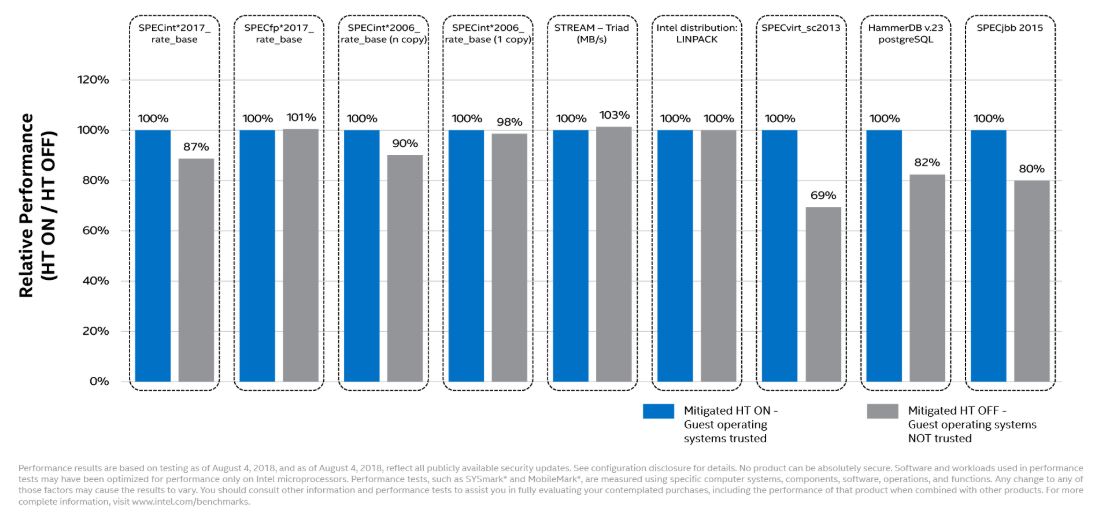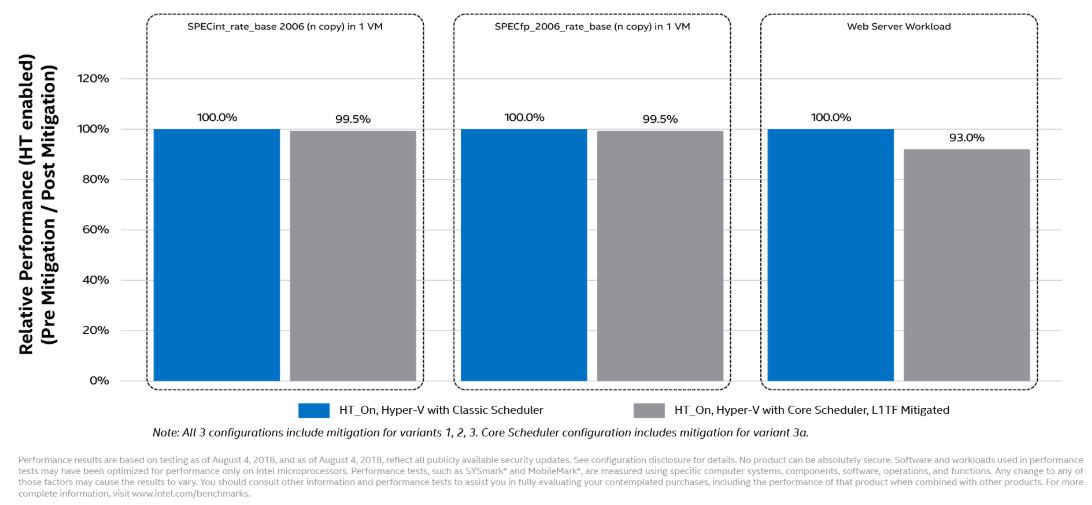- Joined
- Oct 9, 2007
- Messages
- 47,670 (7.43/day)
- Location
- Dublin, Ireland
| System Name | RBMK-1000 |
|---|---|
| Processor | AMD Ryzen 7 5700G |
| Motherboard | Gigabyte B550 AORUS Elite V2 |
| Cooling | DeepCool Gammax L240 V2 |
| Memory | 2x 16GB DDR4-3200 |
| Video Card(s) | Galax RTX 4070 Ti EX |
| Storage | Samsung 990 1TB |
| Display(s) | BenQ 1440p 60 Hz 27-inch |
| Case | Corsair Carbide 100R |
| Audio Device(s) | ASUS SupremeFX S1220A |
| Power Supply | Cooler Master MWE Gold 650W |
| Mouse | ASUS ROG Strix Impact |
| Keyboard | Gamdias Hermes E2 |
| Software | Windows 11 Pro |
Much of the secret sauce that made Intel processors faster than AMD is going sour, as the cybersecurity community is finding gaping security vulnerabilities by exploiting features such as speculative execution. Intel's microcode updates that mitigate these vulnerabilities impact performance. Intel isn't too happy about public performance numbers put out by its customers, which it fears could blunt the competitive edge of its products. The company has hence updated the license terms governing the microcode update distribution to explicitly forbid its users from publishing comparative "before/after" performance numbers of patched processors.
The updated license for the microcode update has this controversial sentence (pay attention to "v"):

Some of Intel's biggest enterprise customers are cloud computing providers such as AWS, Microsoft, and Google, who have made it their duty to keep their customers informed about the performance impact of microcode updated processors, since it impacts their cost/performance when the scale is big enough. This gag is both unethical, and probably even illegal.
View at TechPowerUp Main Site
The updated license for the microcode update has this controversial sentence (pay attention to "v"):
"You will not, and will not allow any third party to (i) use, copy, distribute, sell or offer to sell the Software or associated documentation; (ii) modify, adapt, enhance, disassemble, decompile, reverse engineer, change or create derivative works from the Software except and only to the extent as specifically required by mandatory applicable laws or any applicable third party license terms accompanying the Software; (iii) use or make the Software available for the use or benefit of third parties; or (iv) use the Software on Your products other than those that include the Intel hardware product(s), platform(s), or software identified in the Software; or (v) publish or provide any Software benchmark or comparison test results."

Some of Intel's biggest enterprise customers are cloud computing providers such as AWS, Microsoft, and Google, who have made it their duty to keep their customers informed about the performance impact of microcode updated processors, since it impacts their cost/performance when the scale is big enough. This gag is both unethical, and probably even illegal.
View at TechPowerUp Main Site








